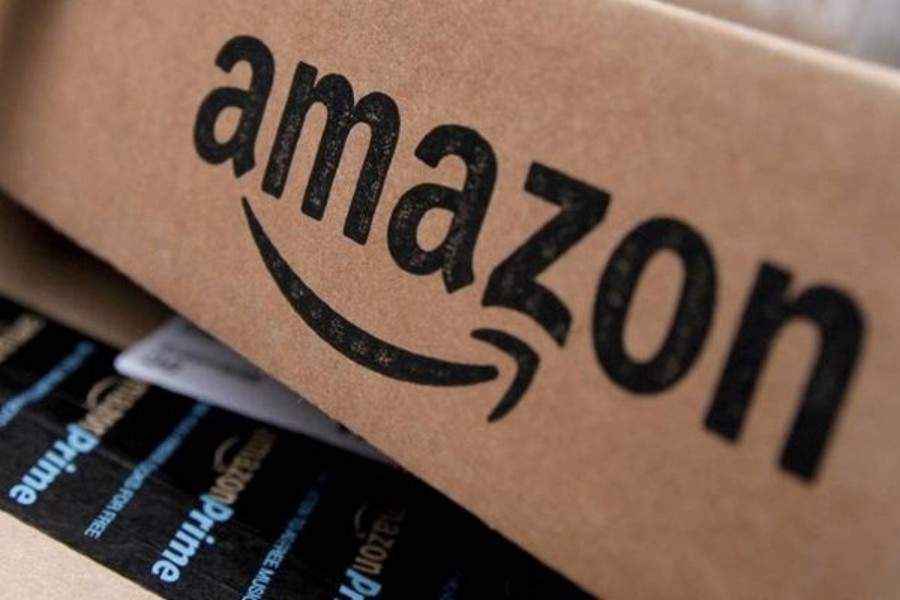
The retail landscape has undergone a seismic shift in recent years, primarily influenced by the rise of Amazon.
This e-commerce giant has disrupted traditional brick-and-mortar businesses, forcing them to adapt or face the risk of extinction. However, amidst the challenges posed by Amazon’s dominance, there are valuable lessons to be learned and strategies to be employed by retailers of all sizes. In this article, we will explore the impact of Amazon on the retail industry, the shifts in supply chain management, how traditional retailers have responded, and the future of retail in the face of the Amazon effect.
The Rise of Amazon: A Retail Revolution
Amazon’s Disruption and Competitive Pricing
Amazon’s journey from a modest online bookseller to a global retail powerhouse has been nothing short of revolutionary. In its early days, Amazon disrupted the industry by offering products, starting with books, at lower prices than traditional brick-and-mortar stores. This competitive pricing strategy attracted more customers, increasing sales volume and fueling Amazon’s rapid growth. This model, born out of the internet age, fundamentally shifted consumer behavior towards online shopping and set the stage for Amazon’s dominance.
Customer-Centric Innovation: The Key to Amazon’s Success
Amazon’s retail revolution went beyond competitive pricing. The company’s relentless focus on customer-centric innovation has transformed the shopping experience. One of Amazon’s key innovations was the introduction of Amazon Prime in 2005. With unlimited free two-day shipping for an annual fee, Amazon Prime provided unparalleled service, fostered customer loyalty, and increased shopping frequency. This, coupled with expanding product categories beyond books, turned Amazon into a one-stop shop for consumers.
From Alexa to Logistics: Redefining Convenience
Amazon continued to redefine the shopping experience with innovations like Alexa, its voice-activated personal assistant. Through Alexa, customers could order products simply by speaking, bringing shopping into the realm of artificial intelligence. This further elevated convenience in the retail industry. Furthermore, Amazon leveraged its logistics capabilities to revolutionize retail. By controlling delivery, Amazon ensured fast and reliable service, enhancing customer satisfaction and driving further growth. The company even experimented with drone delivery, demonstrating its commitment to innovation.
Empowering Sellers: The Amazon Marketplace
In addition to transforming the shopping experience for consumers, Amazon created new opportunities for sellers. Amazon allowed small businesses to reach a global customer base through its marketplace, providing a platform for unimaginable growth. Services like Fulfillment by Amazon (FBA) removed logistical challenges associated with online retail, enabling sellers to focus on creating and selling great products. Amazon’s influence on retail is a story of relentless innovation and disruption, from its humble beginnings as an online bookseller to its current position as a global retail powerhouse.
Shifting Supply Chain Management Strategies
The Tech-Driven, Customer-Centric Approach
Amazon’s success is attributed to its disruptive business model and supply chain management strategies. Unlike traditional retailers, Amazon’s supply chain is technology-driven, customer-centric, and highly efficient. The company integrates technology into every aspect of its operations, allowing for precise inventory management, optimized order fulfillment, and streamlined logistics. For instance, Amazon’s inventory planning system utilizes advanced predictive algorithms to forecast demand, optimize inventory levels, and reduce carrying costs.
Logistics Network and Fast Delivery
Amazon has heavily invested in its logistics network, building warehouses worldwide to ensure fast and reliable delivery. By controlling their logistics, Amazon bypasses intermediaries, reducing costs and lead times. This approach enables Amazon to offer services like same-day delivery, setting a new benchmark for speed in the e-commerce industry. The company’s commitment to innovation further exemplifies its exploration of emerging technologies like drone delivery.
Challenges and Opportunities
While Amazon’s supply chain is a force to be reckoned with, it has weaknesses. The company’s reliance on technology makes it vulnerable to cyber threats, and managing a complex global network poses challenges. Additionally, Amazon’s emphasis on speed and efficiency has faced criticism regarding workers’ rights. However, despite these challenges, Amazon’s groundbreaking strategies have forced other players in the industry to reevaluate and improve their supply chain management, leading to industry-wide shifts towards greater efficiency and customer-centricity.
Traditional Retailers: Adapting to the Amazon Effect
The Challenges Faced by Traditional Retailers
The Amazon effect has posed significant challenges to traditional retailers. Amazon’s vast product range, competitive pricing, superior search and recommendation systems, and fast, reliable delivery services have put pressure on brick-and-mortar stores. Traditional retailers, especially smaller businesses, need help to compete with Amazon’s scale and efficiency.
Successful Adaptation Strategies
However, some retailers have successfully adapted to the Amazon effect and found ways to thrive in the changing landscape. A retail giant, Walmart has invested heavily in its e-commerce capabilities, acquiring companies like Jet.com and launching its own membership program, Walmart+. By integrating their online and offline operations, Walmart offers services like “buy online, pick up in-store” and curbside pickup, leveraging their physical stores to enhance customer convenience.
Another example is Best Buy, which faced the threat of extinction due to the Amazon effect. However, the company turned its fortunes around by implementing a successful price-matching policy, improving customer service, and using its stores as showrooms where customers can try out products before making online purchases.
The Impact on Smaller Retailers
While larger retailers have found ways to navigate the Amazon effect, smaller retailers and local businesses face a more significant challenge. They need help to compete with Amazon’s scale and efficiency, making it imperative to find unique selling propositions and leverage their community connections to attract and retain customers. Building personalized relationships, offering unique product presentations, and providing exceptional customer service can help smaller retailers differentiate themselves in the market.
The Future of Retail in the Amazon Era
Constant Innovation: Adapting to Changing Consumer Behavior
The Amazon effect has permanently transformed consumer expectations and behavior. Shoppers now demand a seamless, personalized, and connected shopping experience across all channels. Retailers must continue to innovate and adapt to meet these evolving expectations. Experimentation and investment in technologies and strategies that enhance the customer experience will be crucial for retailers to stay competitive in the Amazon era.
Leveraging Technology and Data
Retailers must leverage technology and data to optimize their operations to compete with Amazon. Advanced analytics, artificial intelligence, and automation can streamline processes, improve inventory management, and enhance customer service. Retailers should also focus on building robust omnichannel capabilities, integrating their online and offline channels to provide a seamless shopping experience.
Embracing Partnerships and Collaborations
In the face of Amazon’s dominance, retailers can also explore partnerships and collaborations with other businesses. By joining forces, retailers can tap into new customer segments, expand their product offerings, and create unique value propositions that set them apart from Amazon.
Differentiation Through Experience
Retailers must prioritize the overall customer experience to differentiate themselves from Amazon. Creating memorable in-store experiences, offering personalized recommendations, and providing exceptional customer service can foster loyalty and attract shoppers who value the human touch.
Nurturing Community Connections
Smaller retailers and local businesses can leverage community connections to build customer loyalty and support. Engaging with the local community, participating in events, and supporting local causes can help retailers create a sense of belonging and differentiate themselves from the impersonal nature of online shopping.
Balancing Online and Offline Presence
While e-commerce continues to grow, physical stores still play a vital role in the retail industry. Retailers must find the right balance between their online and offline presence, creating a seamless omnichannel experience that caters to the preferences of different customer segments. Integrating online and offline operations, offering convenient pickup options, and providing personalized in-store experiences can help retailers thrive in the Amazon era.
Conclusion
The Amazon effect has revolutionized the retail industry, challenging traditional retailers to adapt or face the risk of obsolescence. By understanding the impact of Amazon’s dominance, retailers can navigate the changing landscape, leveraging innovation, technology, and customer-centric strategies to stay competitive. While Amazon’s influence is undeniable, there are still opportunities for retailers of all sizes to differentiate themselves, provide exceptional experiences, and foster customer loyalty. By embracing the lessons learned from the Amazon effect, retailers can thrive in the ever-evolving retail landscape.
A leading Amazon Agency like SalesDuo can be a one-stop solution to manage all aspects of the Amazon and eCommerce business. This makes it easy for retail brands of all sizes to focus on what matters most while we help them set up, manage, and grow their business on multiple marketplaces across various markets. For more information, visit salesduo.com
- The Rise And Fall Of 65 West 128th Street: A Microcosm Of Harlem’s History
- From Rainforest To Asphalt: Amazon’s Sustainability Report Struggles To Navigate Harlem’s Future
- Broom Drill In A Harlem Church: A Unique 1882 Tradition
- Wells Fargo Shares Economic Impact From Open For Business Fund
- Harlem Rallies For Kamala Harris: A Historic Gathering Of Black Women Leaders
Become a Harlem Insider!
By submitting this form, you are consenting to receive marketing emails from: Harlem World Magazine, 2521 1/2 west 42nd street, Los Angeles, CA, 90008, https://www.harlemworldmagazine.com. You can revoke your consent to receive emails at any time by using the SafeUnsubscribe® link, found at the bottom of every email. Emails are serviced by Constant Contact









